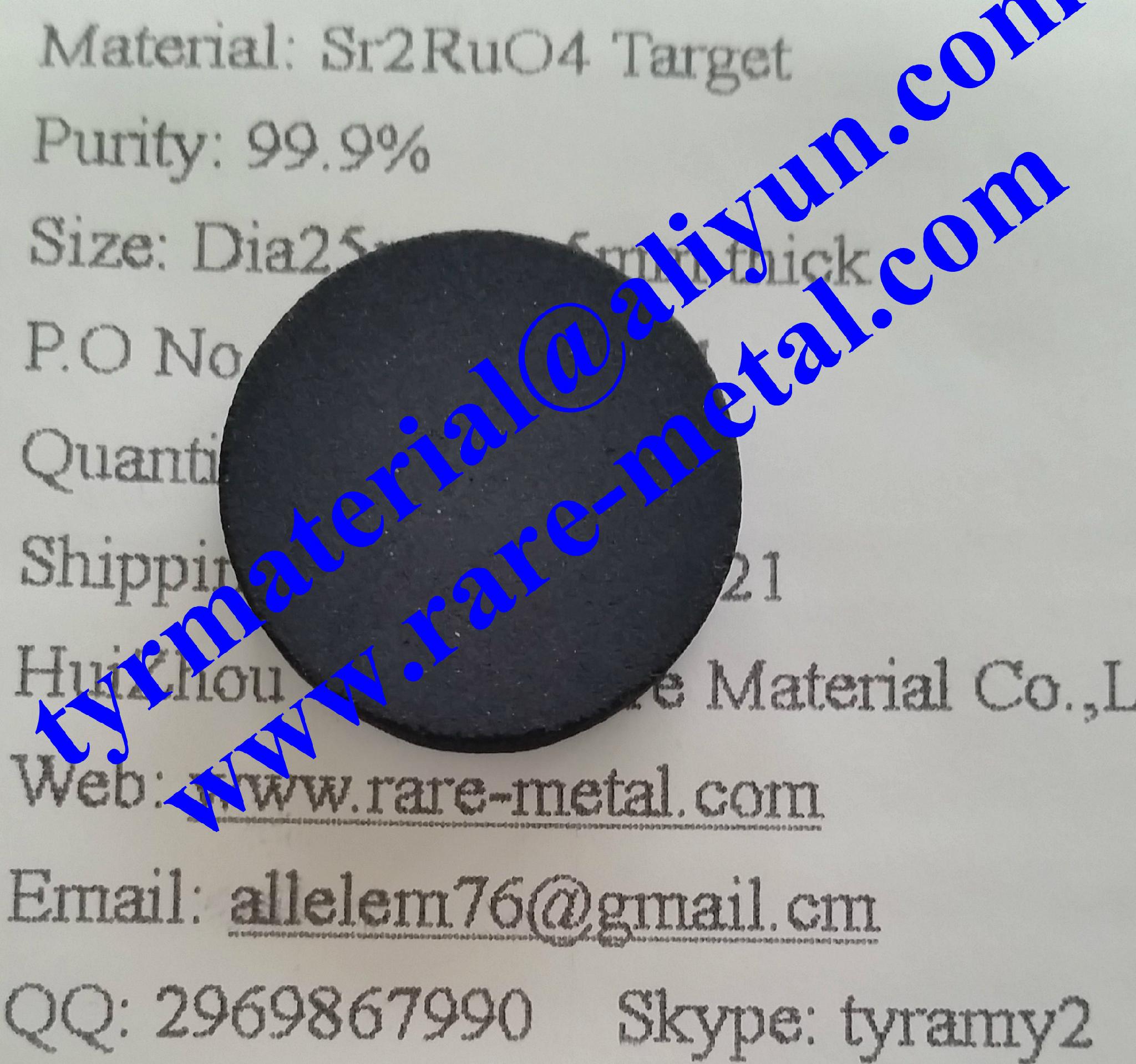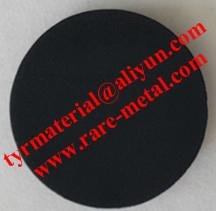
|
|
|
|
Strontium Ruthanate SrRuO3 Sr2RuO4 Sputtering targets
Model No.︰
SrRuO3
Brand Name︰
TYR
Country of Origin︰
China
Unit Price︰
CNY ¥ 300 / pc
Minimum Order︰
1 pc
Product Description
Strontium Ruthanate sputtering targets
Composition: SrRuO3, Sr2RuO4
Purity: 99.9%
Relative Density: 85% min
Shape: Discs, disks, step disk, delta, plate, sheets or made per drawing
Diameter: 355.6mm (14") max.
Single piece Size: Length: <500mm, Width: <250mm, Thickness: >1mm, if larger size than this, we can do it as Tiles joint by 45 degree or 90 degree
Made sputtering targets method: hot pressing (HP), hot/cold isostatic pressing (HIP, CIP), and vacuum melting, vacuum sintering
Strontium ruthenate (SRO) is an oxide of strontium and ruthenium with the chemical formula Sr2RuO4. It was the first reported perovskite superconductor that did not contain copper.Strontium ruthenate is structurally very similar to the high-temperature cuprate superconductors,and in particular, is almost identical to the lanthanum doped superconductor (La, Sr)2CuO4. However, the transition temperature for the superconducting phase transition is 0.93 K, which is much lower than the corresponding value for cuprates.
High-quality crystals of strontium ruthenate are synthesized using a floating zone method in a controlled atmosphere with ruthenium as flux. The perovskite structure can be deduced based on powder x-ray diffraction measurements. Strontium ruthenate behaves as a conventional Fermi liquid at temperatures below 25 K.
Superconductivity:
Superconductivity in SRO was first observed by Yoshiteru Maeno and his group in 1994 when they were looking for high temperature superconductors with structures similar to the cuprates. Unlike the cuprates, SRO displays superconductivity even in the absence of doping. The superconducting order parameter in SRO has been shown to exhibit signatures of time-reversal symmetry breaking, and hence, it can be classified as an unconventional superconductor.





